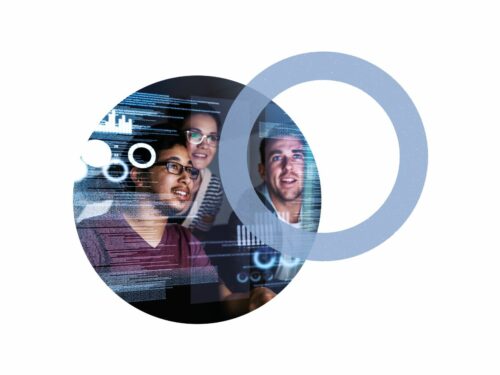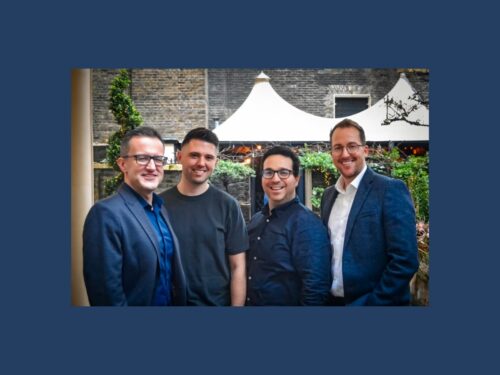If you are struggling to train and retain your technicians, then you might need Netmatters’ Skills Bootcamp. Our...
UKTN – Tech in the East: The October 2018 roundup
AMAZON CREATES 180 NEW JOBS
Online retail giant, Amazon, is creating an additional 180 jobs at its Cambridge Development Centre. These roles will develop innovations for Amazon Alexa and Amazon Web Services, and will explore machine learning.
Amazon also announced plans to open a new office in Manchester, bringing its total number of UK employees up to 1,000.
Doug Gurr, Amazon’s UK country manager, said: “With the UK taking a leading role in our global innovation, we are delighted to announce plans to create capacity for over 1,000 new highly skilled roles across the country.
“These are Silicon Valley jobs in Britain, and further cement our long-term commitment to the UK.”
The Cambridge Development Centre will receive investment from Amazon, enabling it to expand to accommodate the 180 new roles.
The facility hosts Amazon’s R&D teams working on projects including Amazon Devices and Alexa, Amazon Web Services, drone delivery (Prime Air), machine learning, and platform development.
Since 2010, Amazon has invested more than £9.3 billion in the UK, and is on course to grow to 27,500 roles — including over 6,500 roles in its corporate, Amazon Web Services (AWS) and R&D divisions — by the end of the year.
NEWMARKET’S SPARK EV IN GLOBAL ELECTRIC VEHICLE TRAILS
Spark EV joins just four other startups selected for BP and RocketSpace’s Mobility Tech Innovation Collaborative programme — designed to accelerate the adoption of electric vehicles.
The global programme brings together startups and industry leaders to develop real-world, proof of concept projects investigating the future of transport.
During the twelve-week campaign, Spark EV will collaborate with innovative corporates to test its journey prediction software, including Avis Budget Group, IBM and Renault-Nissan-Mitsubishi.
Spark’s AI software uses machine learning to help EVs and hybrids go further between charges by using live data from the vehicle, driver and atmospherics.
These more accurate predictions help remove range anxiety and increase vehicle trust, therefore driving greater adoption of electric vehicles by both businesses and consumers.
Justin Ott, the Spark Technology CEO, said: “The Mobility Tech Innovation Collaborative programme is the perfect fit for our technology and aims, helping us put our technology in the hands of leading companies, show real world benefits and extend our network, driving our growth.
“By collaborating with BP and other industry leaders we can accelerate development and adoption of our AI-based technology to ultimately help drive greater EV adoption.”
The proof of concept projects will be tested at a demo day in December.
A MULTI-MILLION DOLLAR US DEFENCE PROJECT
Blighter Surveillance Systems Ltd has partnered with Liteye Systems to serve an $18m project for the US Department of Defence.
Based in Cambridge, Blighter Surveillance Systems provides electronic-scanning radars and surveillance solutions. The firm will provide Liteye Systems with its counter unmanned aerial vehicle radar technology.
Colorado-based Liteye is contracted to deliver numerous anti-drone systems to the US Department of Defence by the end of the fourth quarter of 2018. The firm also operates a UK subsidiary company in Colchester, Essex.
Mark Radford, CEO of Blighter Surveillance Systems, said: “We are delighted to be supplying our counter-UAV radar to Liteye for the US Defence Department. Yet again, we see our field proven, mission deployed Blighter A400 series radars being selected to respond to the very real strategic threat posed by rogue unmanned systems.”
Blighter Surveillance Systems is the world leader in electronic radars. Its maintenance free systems are deployed in 35 countries to deliver round the clock all-weather protection along borders, for coastal facilities, at military bases, and to guard critical national infrastructure such as airports, oil and gas facilities and palaces.
ANGLIA RUSKIN UNIVERSITY DEVELOPS AI APP TO SPOT TB
Researchers at Anglia Ruskin University in Chelmsford have developed a new mobile phone app that can spot tuberculosis (TB).
The app uses the smartphone camera to digitally capture a “biosensor” with a sputum sample — a mixture of saliva and mucus — then uses AI to analyse the images detect TB-specific antibodies.
The app has an up to 98.4% accuracy rate in detecting TB. The test results are available in a matter of minutes.
Alamgir Hossain, director of the university’s IT research institute and co-author of the study, said: “Our system is a portable, cheap and accurate automatic TB diagnosis tool which can benefit millions of people, especially in remote locations where few health experts are available.”
The app does not require internet access or additional smartphone hardware in order to work. The research team hope for the app to be in use within the next two years.
Academics from the University of East Anglia in Norwich and Universiti Putra Malaysia also contributed to the research project.
Full article on UKTN
Do Your Team Need Coding & Web Development Training?
Amazon Agency Optimizon Continues Expansion with Strategic Acquisition of Marketplace Power
LONDON – Optimizon, a leading Amazon and e-commerce agency in the UK, is thrilled to announce the successful...
Cambridge Wide Open Day returns with ‘Be Curious’ Sci-Tech City-wide event
LEADING science companies and innovation parks will once again open their doors to showcase their contribution to...




